


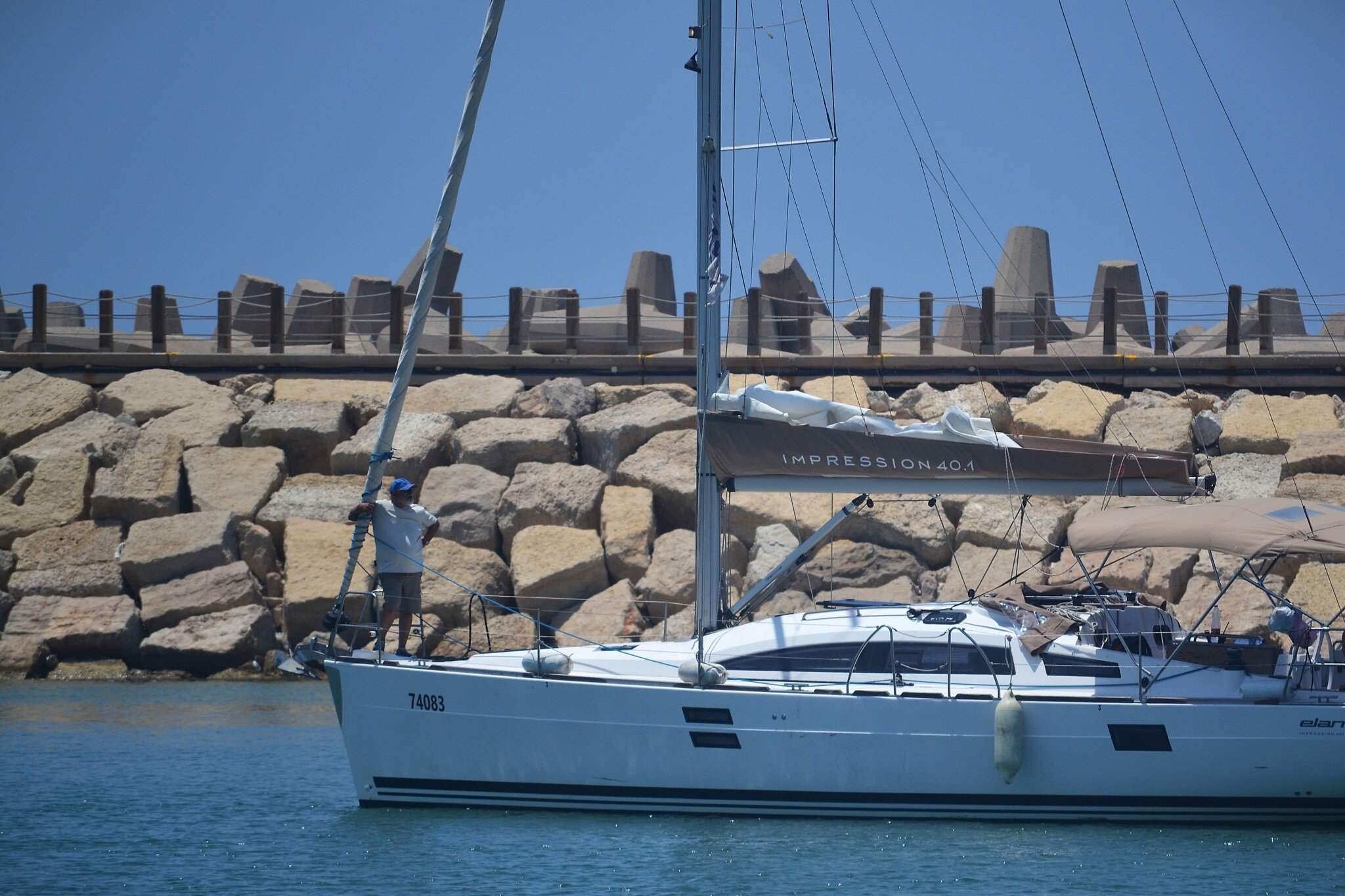
Under a blazing Mediterranean sun, the Herzliya Marina appeared unusually still on Monday, with empty restaurants, closed shops, and silent promenades. Yet at the water’s edge, activity pulsed steadily: boats arriving and departing as Israelis stranded abroad made their way home by sea.
“More boats left the marina this week than in a regular year,” says Kobi Koriat, owner of Sailor Yacht Club, which operates out of the port. “We’re working around the clock — one trip out, one trip back. It never stops.”
Over the past 12 days, as fighting between Israel and Iran kept Israel’s airspace largely shuttered to all but a handful of flights, a growing number of the approximately 100,000 Israelis stuck abroad turned to the sea, braving 24 to 30-hour journeys across the Mediterranean on private sailboats or yachts captained by seasoned skippers.
On Monday afternoon, shortly after 1 p.m., one such vessel returned from Cyprus carrying three passengers. After clearing customs and passport control, they stepped back onto Israeli soil, exhausted but relieved.
Among them was Meital Waiss, a personal and organizational coach who frequently travels between Israel and Greece, where she runs workshops. When the skies became unreliable, she chose to sail back rather than fly to Jordan and try to transit overland.
“I either had the option to travel by air, through Aqaba, or to do it with a yacht,” Waiss said. A licensed skipper herself, the decision was clear. “For me, the sea is always preferable.”

Waiss described sleeping deeply on the journey, not despite the war, but because of it.
“I slept because I understood that here in Israel, people don’t sleep,” she said, referencing days of missile barrages and overnight red alert sirens.
According to Waiss, toward the end of the 26-hour journey, the waves picked up.
“I felt a bit nauseous,” she said, “but the crew members are professionals. I felt very safe.”
The atmosphere, she added, was surprisingly enjoyable — sunbathing on deck to music, with drinks included.
“It was like a boutique sailboat,” she said, adding that several others who had been planning to sail had canceled at the last minute to try flying instead, unaware that many of those flights would soon be canceled as Israel shut its skies again after the US strike on Iran’s nuclear facilities.
Since the start of the war, Sailor Yacht Club has been inundated with requests to get people in or out of Israel.
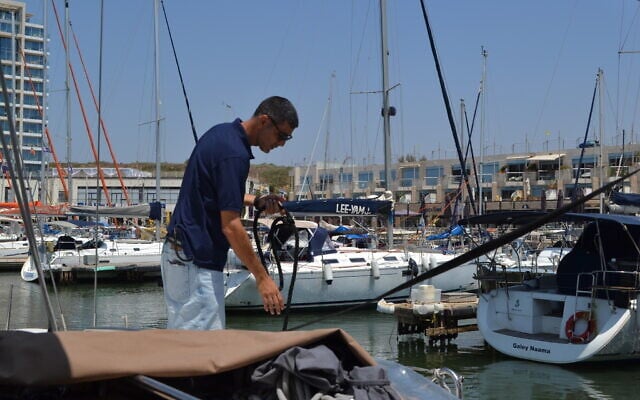
“A situation was created in which there was a large bottleneck of people who wanted to leave and return to Israel,” said Koriat. “We get hundreds of inquiries a day.” Some come through social media, others by word of mouth, or through WhatsApp groups that connect travelers with skippers.
Sailor has completed roughly 10 round-trip voyages so far, each taking about four days, including restocking and port time. Prices for a one-way ticket range between NIS 1,000 to NIS 4,000 ($270–$1,070), depending on the number of passengers and the cost of supplies and fuel.
While the early days saw an even mix of people trying to leave and return, Koriat said demand shifted as repatriation flights began late last week.
“Now, more people want to leave rather than return,” he noted.
Some of those boarding boats did so due to a lack of alternative options.
“This journey isn’t suitable for everyone,” he said. “If this is their first interaction with the sea, there’s a chance they won’t want a second.” For inexperienced passengers, seasickness, fear, and psychological fatigue are common.

That’s why Sailor tries to make the experience as easy as possible.
“Until now, we’ve had excellent responses,” Koriat said.
He credited border control, customs, and the Herzliya Marina authorities for helping streamline the process despite wartime pressures.
The boat that brought Waiss home was helmed by Captain Katya — a seasoned sailor with five years’ experience at the yacht club and a member of the women’s sailing club Nashit (a Hebrew play on words between the word “feminine” and “sailing”).
Female skippers are rare in the industry, which is physically demanding and male-dominated. But Katya has become a trusted name among the Sailor crew.
“She’s more man than our male skippers,” Koriat joked.
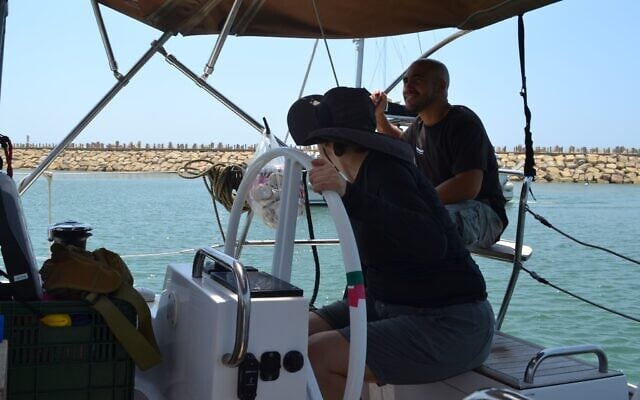
Despite the war, the return voyage was mostly calm, though not without complications. Due to Israeli military GPS jamming, navigation apps have become unreliable, often misplacing users in neighboring countries like Beirut or Cairo. The jamming aims to prevent GPS-guided Iranian drone attacks, including via the Mediterranean, but it can also make seafaring tricky for skippers trying to find their way across the expanse of blue.
A number of sea journeys have ended with SOS calls to emergency responders.
According to Ynet, police maritime units were called on Sunday to assist a vessel in distress carrying nine Israelis — including a child and an elderly woman — after its mast snapped while trying to make the crossing from Cyprus. The boat, rendered powerless and out of radio contact, was drifting off the coast when police patrols located and evacuated those on board.
A similar incident occurred just days earlier, when the Israeli Navy rescued 14 passengers — among them 10 children — from another malfunctioning yacht.
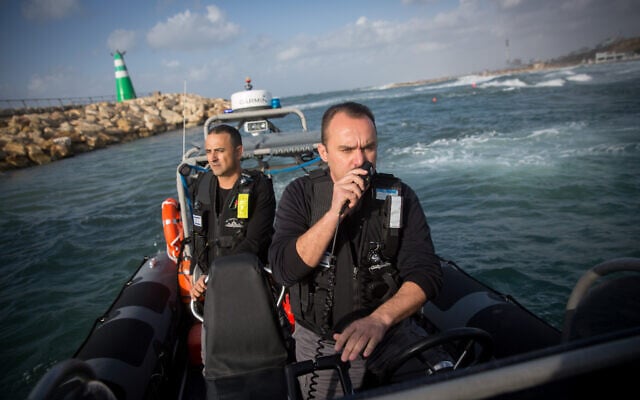
Chief Superintendent Ran Vered, head of the Israel Police’s Eastern Mediterranean maritime division, warned that these improvised crossings come with serious risks.
“Sailing from Cyprus to Israel on a sailboat takes 24 hours — a long and grueling trip for those unaccustomed to the sea,” he said. “This is a clear and immediate danger to human life.”
Gleb Smirnov, a 34-year-old photographer from Holon, was among the passengers rescued Sunday. Speaking to Ynet, he described taking the wheel himself after the skipper fell asleep, only to hear the mast crack hours later.
“I’m never getting on a yacht again,” he said. “Honestly, I feel like I survived the Titanic.”
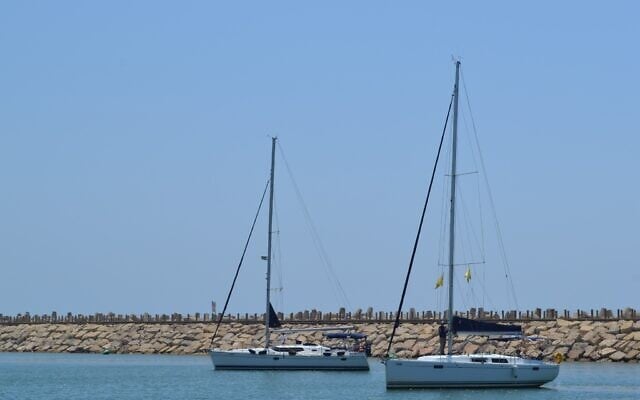
While many stranded Israelis have relied on private yachts and sailboats to return, larger-scale maritime options have also emerged. On June 16, Mano Maritime announced it would operate two special cruise voyages — in coordination with Israel’s Transportation Ministry — to help repatriate Israelis from Cyprus.
On Sunday, one of those ships, carrying 1,800 passengers back from Cyprus, was delayed in entering the port of Ashdod following a directive from the Home Front Command, issued in response to an Iranian missile attack.
Similarly, on June 17, a Mano cruise ship evacuated approximately 1,500 Birthright Israel participants from Israel to Cyprus on a voyage that was kept secret due to security concerns.
Waiss said she first learned about the sailing option through a WhatsApp group for skippers.
“I received a few offers, but Sailor seemed the most reputable and serious,” she said.
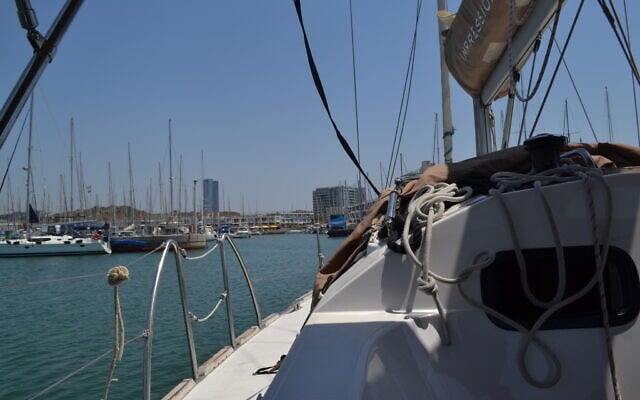
As her boat approached the Israeli coastline, air raid sirens began to wail. Still, she felt something settle.
“I was very worried,” she said of watching the conflict unfold from Greece. “My daughters — I have 24-year-old triplets — my parents, my siblings, they’re all here. We were in constant communication.”
Seeing Israel on the horizon stirred something visceral.
“It doesn’t matter what — this is home,” she said. “My life is here.”
As one of the other passengers departed, she ran to hug him. “We met on the yacht,” she said. “We didn’t know each other before. But we’ll definitely stay in touch.”
